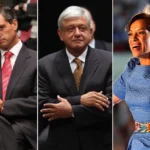Negotiation phase for India is practically over at the Indo-Pacific Economic Framework for Prosperity (IPEF) with agreement on supply chains already signed and talks almost over on clean and fair economy. It must move cautiously now to protect space for the domestic policy action, according to a trade policy think tank.
The three areas, on which the 14-member IPEF has arrived at a substantial understanding, place demands related to environment and labour standards, and put trade restrictions on signatories.
“There is not enough scope for altering the substantially concluded texts through the domestic consultation of legal scrutiny processes…. India must ensure that the new commitments do not overly restrict its policy space or tax revenue generation abilities,” co-founder of Global Trade Research Initiative Ajay Srivastava said in a report. The IPEF members are also negotiating on trade, but India is not part of the discussions.
India’s decision to stay out of the trade pillar, which focuses on digital trade, labour, and other sectors, aligns with its broader strategy of retaining regulatory autonomy and outside pressure must be resisted to join those talks, the report said. The agreement on supply chains signed in the San Francisco round of ministerial discussions aims to enhance cooperation and resilience in critical sectors. One clause of the agreement deals with the issue of ‘export restrictions’.
India imposes such restrictions to curb rising prices for essential commodities like rice and onions. India should not agree to not using the export restriction clause and accept policy restrictions, GTRI said.
The IPEF seeks to restrict its members from trading critical materials or technology to China. This will be a challenging task for the Association of Southeast Asian Nations (ASEAN) as most of their trade is with China. “The emphasis on labour standards, particularly in the context of India’s labour-intensive exports, requires a nuanced approach to avoid external imposition of standards that might not align with India’s socio-economic realities” according to GTRI. India is already implementing many of the obligations related to anti-corruption pledge. Accepting new obligations would make domestic actions legally enforceable and open to international scrutiny.
“Commitments related to the effective administration of tax policy might curtail the ability to raise tax revenue. These must be studied in detail and at no point should a situation arise that India might need outside inputs to change tariffs or impose trade restrictions,” Srivastava said.
The IPEF Clean Economy Agreement makes partners commit to actively pursue their respective pathways to net-zero emission economies. Partners are expected to decarbonize and reduce the climate impact of the transportation sector.
“India also should not agree to minimum standards on clean energy products and technologies for domestic markets. This would prevent producers from selling in their domestic markets and relying on imports,” the report said.
Source: Financial Express
















